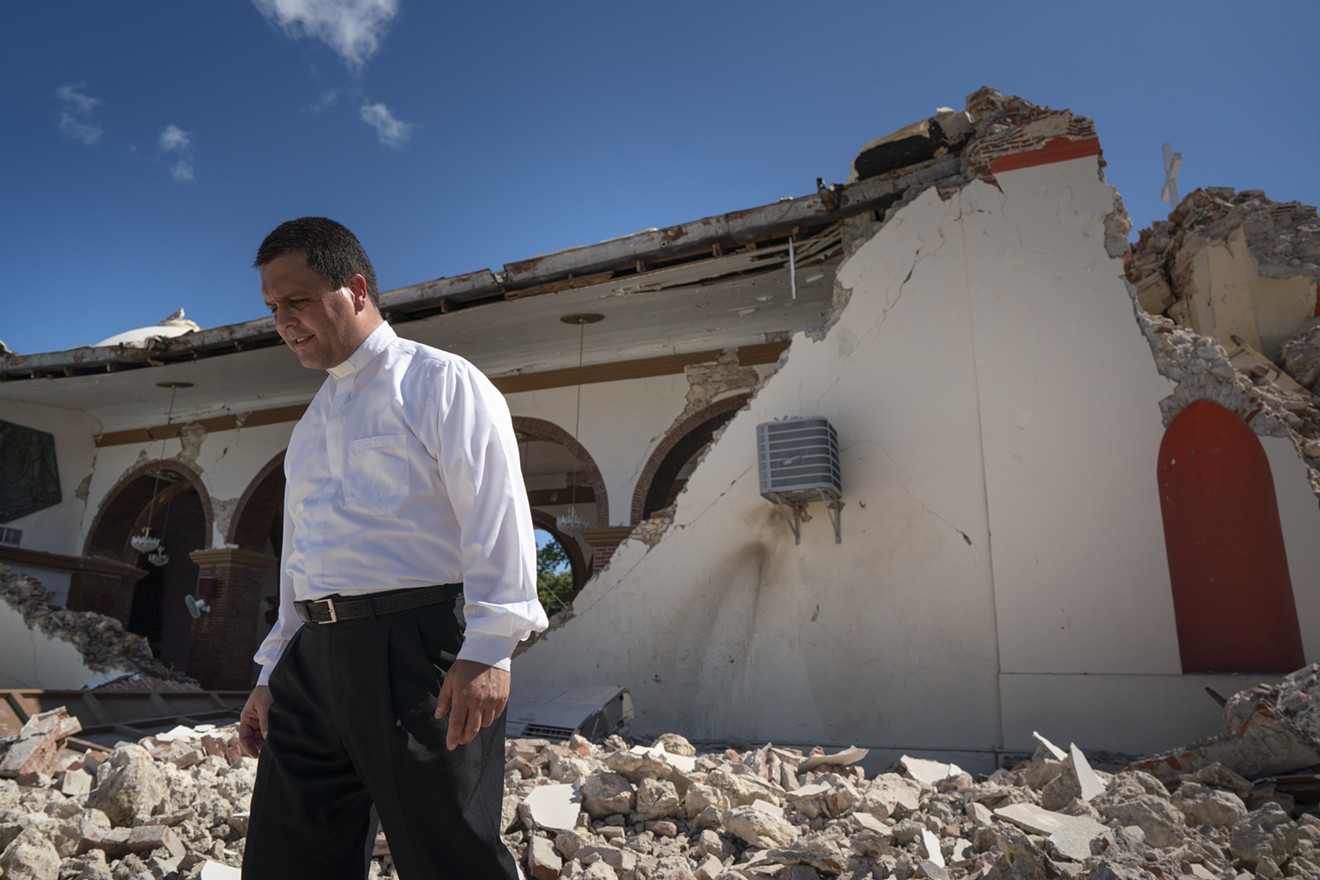Hundreds of earthquakes have rattled Puerto Rico over the past ten days, and the U.S. Geological Survey estimates there are more to come. What remains to be seen is how the earthquakes will affect the people who lived through the destruction of their communities and mourned the deaths of family, friends, and neighbors after Hurricane Maria ravaged the island in September 2017.
Seth Schwartz, a professor of public health sciences at the University of Miami Miller School of Medicine, has studied the mental health impacts of Hurricane Maria on Puerto Ricans. Experiencing the devastation and then living without power, medicine, and adequate food and water for months led to posttraumatic stress, depression, and anxiety, his research found.
Schwartz now expects the earthquakes will compound those existing traumas for some people.
"Almost anybody on the island right now probably went through Maria," Schwartz tells New Times. "It's a very potent reminder of just what can happen to you and others that you care about, the place where you live, and the things that belong to you within such a short period of time."
A study Schwartz coauthored in 2019 reveals that, overall, Puerto Ricans who left the island actually experienced higher rates of posttraumatic stress disorder, depression, and anxiety than those who stayed behind. Of the 213 people surveyed, the study shows 65 percent of those who moved to Florida after the storm met criteria for posttraumatic stress disorder, compared with 43 percent of those who remained on the island. And 46 percent of people who moved to Florida met criteria for major depression, compared with 32 percent of those who remained on the island.
"People who migrate after a disaster are usually those who had the worst impact," Schwartz says. "Your house is gone; your car is gone; your job is gone. You don't have anything left, and so you have to go. Those are often the folks that have the worst burden in terms of mental health."
That could change in the aftermath of a natural disaster that strikes without warning.
"If anybody is going to have a worse experience this time, it's the people who stayed after Maria," Schwartz says.
The Center for Puerto Rican Studies at City University of New York estimates 40,000 to 82,000 people a year have relocated to Florida from Puerto Rico since the storm.
Schwartz, who specializes in crisis migration, calls Florida a "major landing spot" for crisis migrants from Caribbean and Latin American countries and says the state should be prepared to receive survivors of the earthquake, albeit possibly in fewer numbers.
He says people forced to leave their countries following disasters should receive comprehensive mental health evaluations. Employers, schools, and local governments need to be better prepared to provide housing, education, jobs, transportation, and language services to people fleeing disasters, whether it's an earthquake or a war.
"People are going to come here, so we need to make sure we have the resources to be able to receive them and also help them with their mental health symptoms," he says. "Finding the house and getting the person back to work is not all it takes to help someone recover."
The Miami-based Puerto Rican Chamber of Commerce of South Florida and various other organizations are beginning to organize relief efforts for the island in the wake of the recent earthquakes.
"We're hoping for the best and preparing for the worst," chamber president Luis DeRosa says.
To find out how to help, DeRosa says people can call the Dynamic Community Development Organization at 305-576-0010.
[
{
"name": "Air - MediumRectangle - Inline Content - Mobile Display Size",
"component": "19274298",
"insertPoint": "2",
"requiredCountToDisplay": "2"
},{
"name": "Editor Picks",
"component": "17482312",
"insertPoint": "4",
"requiredCountToDisplay": "1"
},{
"name": "Inline Links",
"component": "18711090",
"insertPoint": "8th",
"startingPoint": 8,
"requiredCountToDisplay": "7",
"maxInsertions": 25
},{
"name": "Air - MediumRectangle - Combo - Inline Content",
"component": "17482310",
"insertPoint": "8th",
"startingPoint": 8,
"requiredCountToDisplay": "7",
"maxInsertions": 25
},{
"name": "Inline Links",
"component": "18711090",
"insertPoint": "8th",
"startingPoint": 12,
"requiredCountToDisplay": "11",
"maxInsertions": 25
},{
"name": "Air - Leaderboard Tower - Combo - Inline Content",
"component": "17482313",
"insertPoint": "8th",
"startingPoint": 12,
"requiredCountToDisplay": "11",
"maxInsertions": 25
}
]












